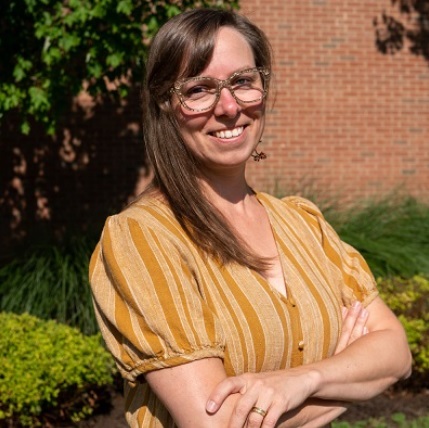Alfred University researcher leads team examining how anti-abortion laws affect OB-GYN practice

Meredith P. Field, an assistant Sociology professor at Alfred University is the lead author on an article in the current issue of Obstetrics & Gynecology examining data on the impact of Ohio laws on medical practice for women in light of the U.S. Supreme Court review of Roe v. Wade.
ALFRED, NY – Meredith P. Field, an assistant Sociology professor at Alfred University is the lead author on an article in the current issue of Obstetrics & Gynecology examining data on the impact of Ohio laws on medical practice for women in light of the U.S. Supreme Court review of Roe v. Wade.
“Ohio Abortion Regulations and Ethical Dilemmas for Obstetrician-Gynecologists” presents data on the impact of recent and ongoing abortion-restricting legislation in Ohio on the practice of obstetrics and gynecology by medical doctors in the state. The article cites the negative consequences the changes have for patients and physicians.
The article reviews abortion care-related regulations enacted in Ohio between 2010 and 2019 and states that many are “imprecise” in their clinical application. Physicians interviewed for the study described how the laws undermine the delivery of obstetric and gynecological services to patients. According to one physician (participants’ names are withheld in the article), “’I see these laws as restricting and attacking the total package of care that we as healthcare providers for women are able to provide.’”
Additional physician complaints cited hospitals as inconsistent in their interpretation of the legislation, thereby providing conflicting directives to their medical staff. The article quotes one physician as saying, “Different hospitals are giving different legal counsel and practice patterns, and some of the gray areas vary from hospital to hospital,” including differing clinical interpretations of fetal ‘viability’ and what is considered ‘life threatening’ to a pregnant patient.
Physicians further noted the legislation fails to consider the practical realties of patient care. “Several participants echoed the sentiment that the Ohio legislature’s ignorance of clinical realities contributes to the creation of regulations that increase risks to patients in emergent situations.” Consequently, some physicians’ felt forced to stand by and watch as their patients’ conditions deteriorated, sometimes to the brink of death.
Physicians also described how they suffer, too, mainly through emotional distress and fear of criminal charges if their clinical judgment is challenged. According to Field, the paper’s findings have national implications because, as a state with some of the strictest abortion regulations in the U.S., Ohio offers a glimpse of the effects on medical practice if the decision in Roe v. Wade is overturned by the final SCOTUS opinion in Dobbs v. Jackson later this year.
Field, a medical sociologist, co-authored the article leading a team of academic and medical scholars from institutions in Ohio including The Ohio State University, University of Cincinnati, and Cincinnati Children’s Hospital Medical Center. A previous version of the paper was presented at the 23rd Annual American Society for Bioethics and Humanities Conference, held in 2021. The study was conducted by OPEN, a research collaborative in which Field also served as a Postdoctoral Research Fellow in the Department of Sociology at University of Cincinnati.
The entire article and an accompanying case study are available on the Obstetrics & Gynecology website.
Media inquiries may be directed to Dr. Meredith Field or Rob Price, Alfred University Office of Marketing and Communications.
